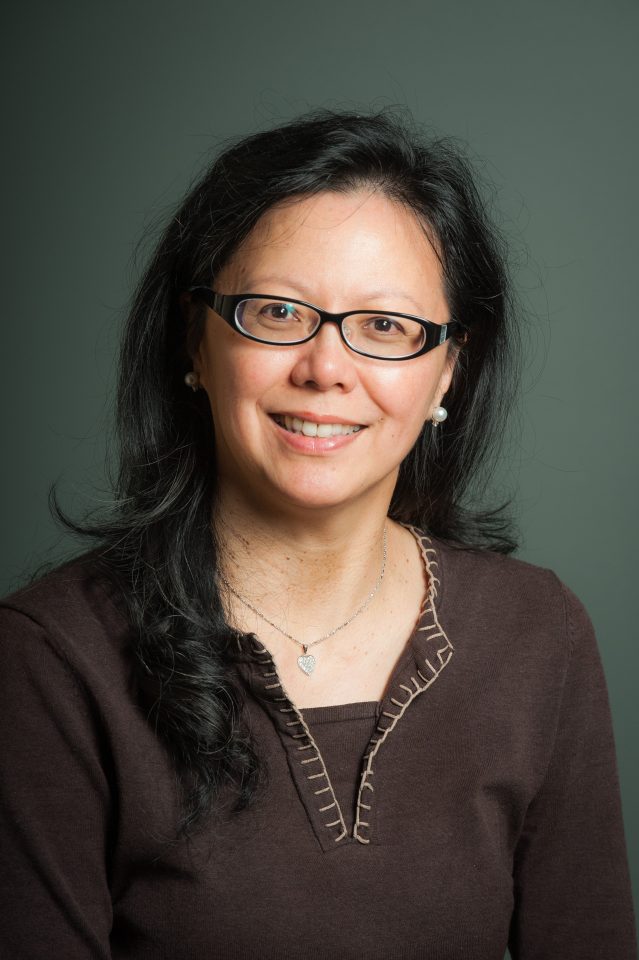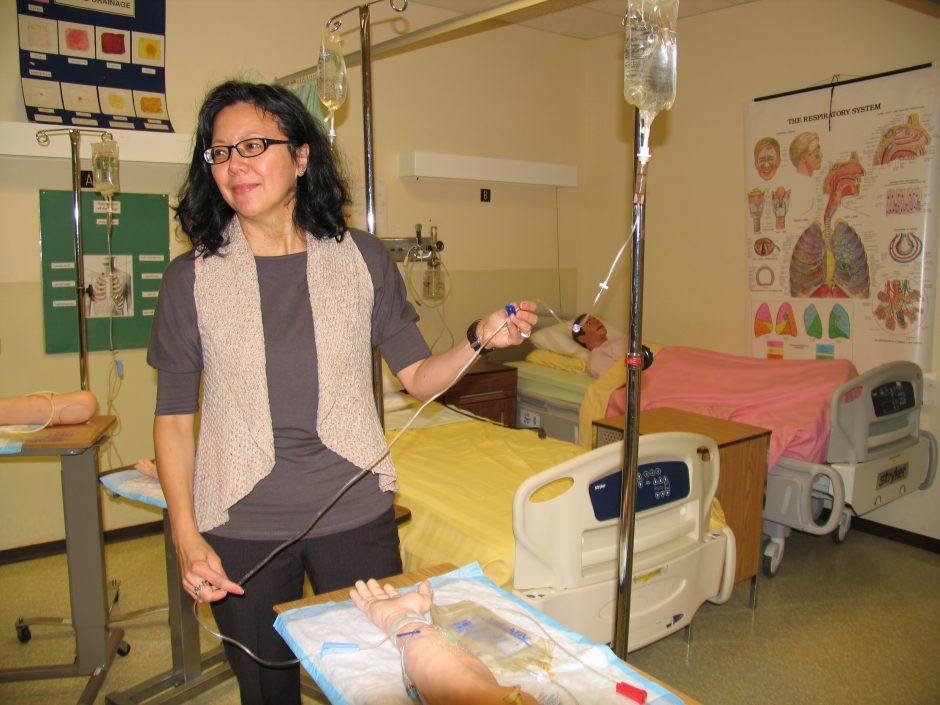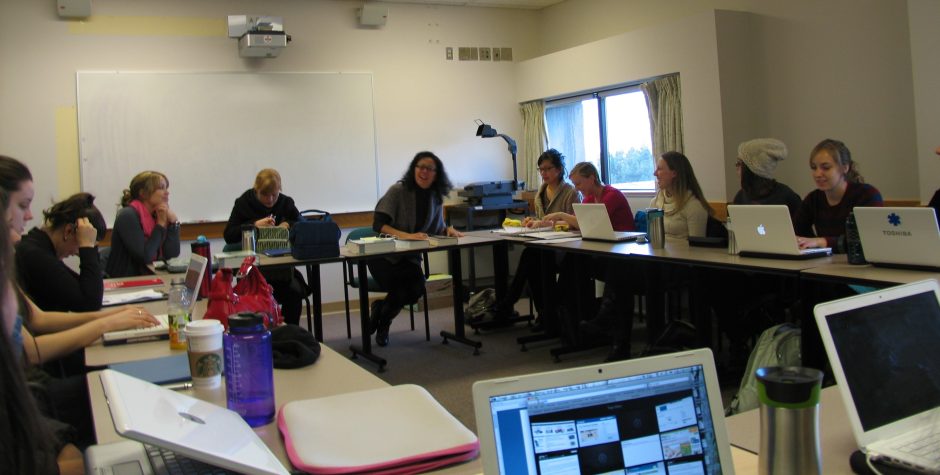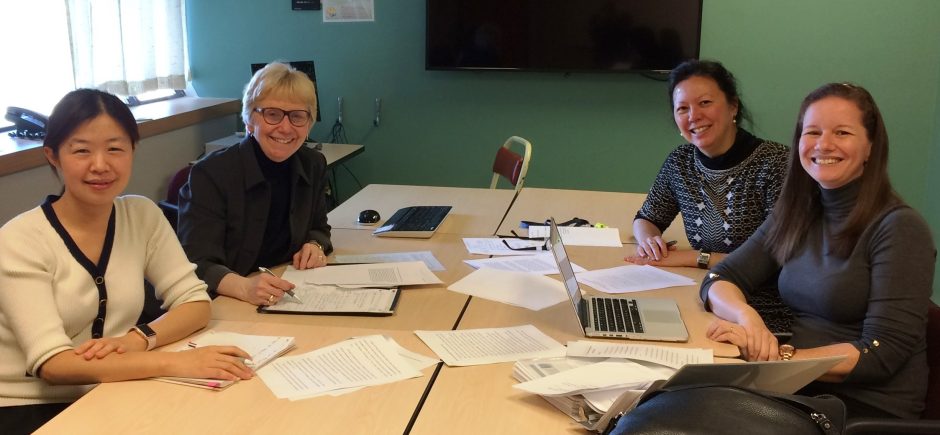
Elsie Tan graduated with a nursing diploma from the British Columbia Institute of Technology (BCIT), followed by a Bachelor of Science in Nursing from the University of Victoria, and a Master of Science in Nursing from the University of British Columbia. She also received her certificate in Post-Basic Pediatric Nursing as part of the requirements for working at BC Children’s Hospital in the 1980s. When she entered academic teaching, she pursued a certificate in Teaching and Learning in Higher Education, which led her to another certification with the BC Ministry of Advanced Education, Centre for Curriculum, Transfer, and Technology, enabling her to support faculty in advancing their teaching capacities at UBC.
Elsie began her career in pediatric nursing at BC Children’s Hospital, where she soon advanced from bedside nursing to become a clinic nurse. This experience led her to return to the UBC School of Nursing’s Master’s Program to specialize in preparation for a Clinical Nurse Specialist (CNS) role, paving the way for her return to BCCH as a CNS. While at the UBC Master’s program, Elsie studied under the guidance and mentorship of Dr. Betty Davies, a renowned researcher, author, and practitioner.
During Elsie’s master’s studies, she participated in a teaching and learning course and completed her practicum at the nursing school’s laboratory setting. Following her teaching practicum, she was invited by the Vancouver General Hospital (VGH)-UBC School of Nursing Collaborative program to teach. Elsie continued her clinical teaching opportunities at the School while completing her Master’s and working part-time at BCCH. Upon graduation, she joined the School as a Clinical Associate (on contract), later advanced to a full-time position as a Lecturer, which led to an appointment as tenure-track Instructor I, and was subsequently tenured as a Senior Instructor. In 2011, when UBC transitioned its tenured teaching-intensive positions into the educational leadership track, Elsie was made Associate Professor of Teaching. Within each of these roles, Elsie not only contributed to the teaching enterprise of the School but also assumed various senior leadership portfolios. When she was promoted to the rank of Professor of Teaching in 2017, she became the first UBC Nursing faculty member to achieve that rank.
Elsie cherishes fond memories of her studies and career at UBC, despite facing trials and tribulations. She viewed these challenges as opportunities to enhance her skills as an educator and administrator, as well as to build her resilience and patience. Elsie expresses gratitude to several School Directors and leaders in the School of Nursing for their mentorship and for trusting her leadership abilities. Among her key leadership roles were Clinical Student Placement Coordinator, Chair of various Standing and Ad Hoc Committees, including newly formed groups like the International Liaison Committee, which later enabled her to facilitate workshops for nursing educators in India under the UBC Nursing/Guru Nanak Partnership. Her other positions included Undergraduate Program Placement Coordinator, Undergraduate Program Coordinator, and Associate Director of the Undergraduate Program. Elsie made significant contributions to interprofessional endeavors that led her to serve as Interim Director for Curriculum at the UBC College of Health Disciplines, a consortium of all health professional educational programs across the university.

Elsie recalls that her most nerve-wracking endeavor as a novice instructor was leading a meeting with clinical instructors in 1994 and then submitting a list of grievances from that meeting to Drs. Kathryn May and Sally Thorne. Fortunately, her role in voicing these grievances was well received, and she was relieved when the School renewed her teaching contract!!
While pediatrics is Elsie’s clinical nursing background, she also taught both theory and practice in various courses in medical/surgical nursing, health promotion, and final clinical preceptorships. The theory courses taught included leadership and management, and socio-cultural construction of health and illness (later renamed ‘relational practice’). This breadth was illustrative of Elsie’s flexibility in taking on roles as needed and her sustained enthusiasm for expanding her knowledge and capacity.
Elsie collaborated with several key curriculum experts while at the School and participated in four curriculum revisions. In the 1990s, she sought out and advocated for clinical learning that reflected the abilities students brought into their nursing program, and she negotiated passionately for opportunities to build on those experiences; these ultimately included clinical learning in emergency departments, pediatric mental health services, rural settings, and placements in Vancouver’s Downtown Eastside. This non-traditional placement pursuit for undergraduate students profoundly influenced student learning and placements within the School, as well as in other nursing programs, and in ways that practice partners viewed the capacities of UBC nursing students. Elsie appreciated the collaborative engagement and experiences with faculty and students, hearing about their visions and challenges to continually advance practice learning.
Although research was not an expectation within the specific faculty roles she held, Elsie engaged in a wide range of small research projects funded by the School of Nursing and often involving students and faculty as part of the research team. She was also a reviewer for nursing education manuscripts, nursing books, and book chapters, and she was invited to participate in larger educational research projects across the university community.

Externally to the School of Nursing and UBC, Elsie developed long-term collaborative partnerships within the nursing practice community, where practice partners trusted her to help resolve grievances when concerns or issues arose with faculty, students, or practice partners. Elsie also served on several Advisory Committees at the health authority level. She was seconded for one year to the BC Ministry of Health as one of six nursing consultants in the BC Pediatric Respite Program. She viewed these experiences as opportunities to enhance her skills as an educator and administrator, and applied the knowledge she gained to her roles at the School of Nursing.
During the COVID-19 pandemic (2020-2021), Elsie adapted the Undergraduate Program with support from the Director, key faculty members, and practice partners. This leadership effort ensured the seamless delivery of the nursing program, maintained student practice amid the urgent need for nurses, prioritized the safety of students and instructors, and enabled graduates to support the nursing practice community. She was grateful to the faculty who pivoted so willingly to work toward the shared vision of success for students and the undergraduate nursing program.

Elsie highly valued her relationships with faculty and students, mentoring many to advance their careers and studies. She championed and supported faculty in pursuing ideas that positively impacted teaching and learning, encouraging their leadership in realizing their vision. Elsie identified and highlighted leadership traits in both faculty and students, passionately creating pathways to showcase their leadership abilities.
Elsie was recognized by undergraduate students with a Teacher of the Year Award (1997-1998), by faculty colleagues with a Clinical Faculty Appreciation Award (2001) and a School of Nursing Citizenship Award (2010-2011), as part of a 9-member team by The Canadian Network for Innovation in Education with an Excellence and Innovation Award (2016), and by the College of Registered Nurses of British Columbia with an Excellence in Nursing Education Award (2012). Elsie retired in 2022 from her career at the School of Nursing, where she had held her last leadership role as Associate Director, Undergraduate Program.